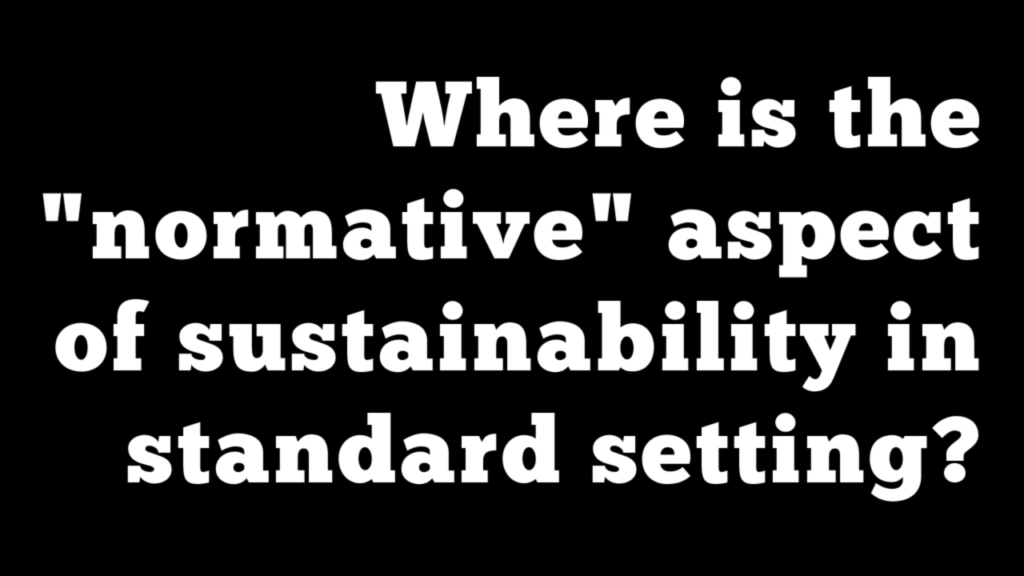Where is the “normative” aspect of sustainability in standard-setting?

In Ralph Thurm’s note about “rightsholdership,” Mark McElroy leaves this comment:
The distinction Ralph makes here between stakeholders and rightsholders is a crucial one, and is emblematic of how leading standards for sustainability reporting have been getting things so wrong for so many years. Even now the new (draft) ESRS standard in the EU overlooks the rightsholders interpretation of stakeholders by defining the latter as parties “that are affected or could be affected” by the activities of an organization or its value chain.
What about “should” be affected (or not, as the case may be)? Where is the normative aspect of sustainability in this?
The problem here is that the non-normative interpretation of stakeholders and materiality completely side-steps the question of what an organization’s impacts on vital resources ought to be, in which case norms and standards for performance are liable to escape the attention of materiality determinations and the reports that follow.
Sustainability accounting (and materiality) must begin by recognizing the rights of others and the correlative duties organizations have to manage their impacts on vital capitals in ways that can affect their well-being. I explain this in my paper “Rights, Duties and Corporate Social ‘Kantracts‘.”
Mark also left this comment on this note from “Integrated Reporting”:
Just to be clear about this, reporting standards that focus mainly on risk management for the narrow benefit of shareholders, and whose guidelines utterly fail to address the impacts of organizations relative to social, economic or environmental norms & thresholds in the world hardly qualify as authentic sustainability reporting standards. Not even close.
No one disputes the IFRS Foundation’s right to develop non-financial reporting standards for the narrow benefit of its primary constituency, shareholders. Indeed, that’s what it’s there for. But to gratuitously brand such guidance in the name of sustainability when it plainly amounts to no such thing is reckless & irresponsible. Deeply unethical even, given the effects it will have on undermining the quality of sustainability reporting by more authentic standards & therefore the incentives all organizations might have to actually improve their sustainability performance.
Still, it is not too late for Emmanuel Faber to do the right thing here, either by having the Foundation drop its disingenuous reference to sustainability altogether, or raise the rigor of their standards so as to actually address sustainability performance per se. Either way, Faber is clearly in a tough spot.
